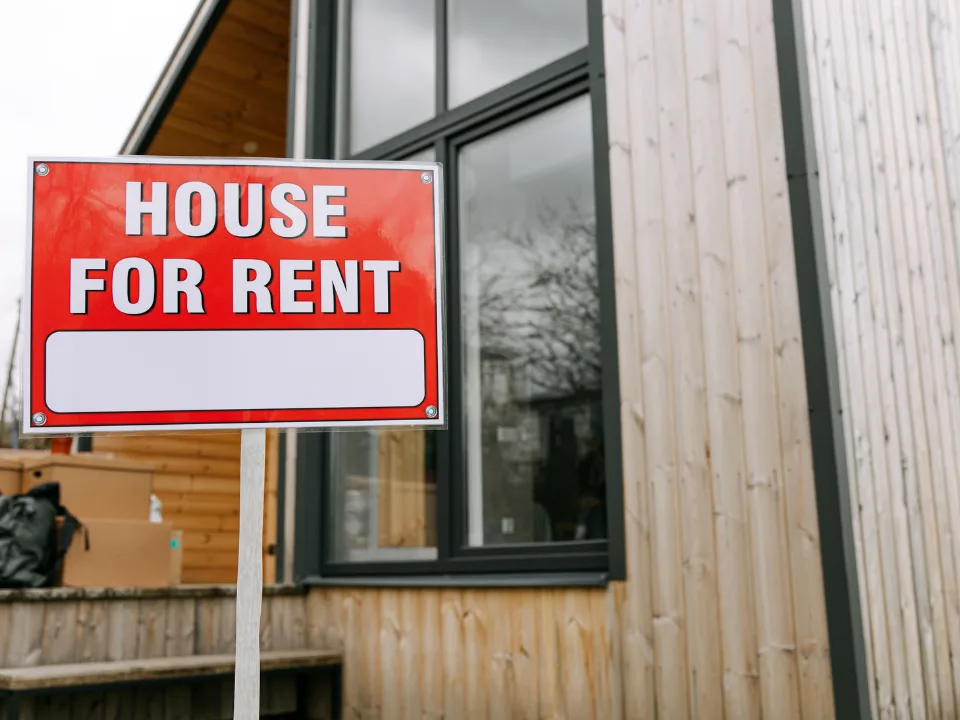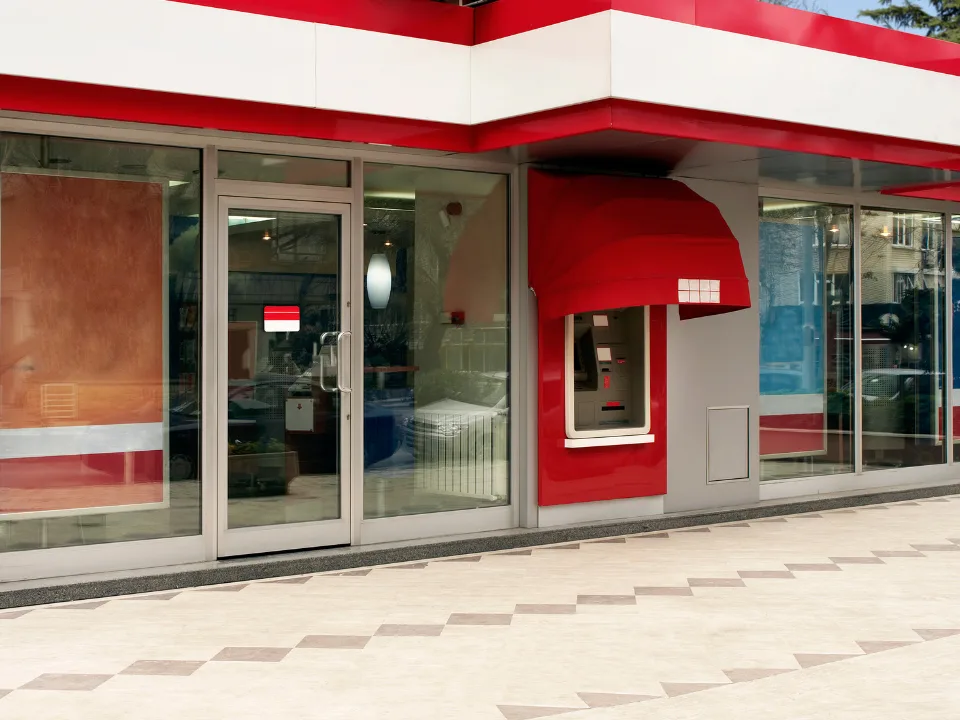Office Owners Under Fire: Short Sellers Step Up Bets
Money managers bet against office landlords due to regional banking crisis reducing credit availability to already struggling owners affected by pandemic and rising interest rates.
Together with
Good morning. Office landlords are facing an increased number of bearish bets from money managers. At the same time, Goldman Sachs predicts that the impact of stricter bank lending will be more severe than the dot-com crisis, but not as bad as the financial crisis.
Today’s edition is brought to you by BetterPitch, a design firm specializing in pitch deck creation for real estate acquisition, management, and disposition.
📬 Want to share the CRE Daily? Click here to forward this email.
PLACE YOUR BETS
Bank Turmoil Sparks Surge in Short Selling Against Office Owners
Office landlords can’t catch a break. First, the pandemic made us all realize that we can work anywhere, making ping-pong tables and free snacks way less appealing. Then the Fed decided to raise rates through the roof. Now, the US regional banking crisis seems to be the icing on the cake for money managers bearish on offices.
REITs feeling the heat: Real estate is the most shorted industry across global equities and the 3rd most shorted sector in the country. Almost 40% of the iShares US Real Estate ETF (IYR) are sold short. Both Hudson Pacific Properties (HPP) and Vornado Realty (VNO) are also seeing the highest level of short interest since January. Hedge funds are using derivatives, which are tied to bonds backed by commercial mortgages, as one way to bet against offices. Fears about regional banks caused these bonds to reach a record low this week, too.

Any moment now: Hedge fund managers have been betting for months that landlords will struggle to lure workers back into offices. One such landlord includes the owner of the NY building occupied by the now-failed Credit Suisse, which was taken over by UBS. Jim Chanos of Marathon Asset Management has also been shorting SL Green (SLG), a firm that is heavily dependent on banks. According to SL Green’s CEO, they plan to sell $2B in properties, cut debt by $2.5B, and refinance a $500M mortgage.
Slowing down fast: Recent regional bank failures have raised concerns for the future of CRE financing. Lenders are losing deposits faster than expected, which could hamper their ability to lend. Regional banks account for almost 80% of CRE lending, with a record $862B advanced last year, up 15% YOY, according to Trepp. As the outlook for CRE continues to sour, lending has also slowed down considerably.
Distressing times: Although defaults are currently low, according to Moody’s, almost $20B of potentially distressed CMBS office loans are due to mature by the end of next year. Office assets are the collateral for about one-fourth of the US CRE debt maturing this year. Offices worth nearly $40B have a higher probability of distress, more than apartments, hotels, malls, or any other type of CRE. Unsurprisingly, credit availability for CRE and sales of CMBS deals without government backing have fallen more than 80% this year.

➥ THE TAKEAWAY
Place your bets: Traders have historically shied away from betting against CRE since it can take a long time for losses to emerge. According to Kamil Sadik, a trader for MS, “Shorting CMBX BBB- is regarded as the widowmaker — the undoing of many a young trader’s career.” But CMBX BBB is at its lowest level ever and office landlords are seeing similar share price declines. Will shorting CRE be a better bet this time around?
TOGETHER WITH BETTERPITCH
Are you tired of moonlighting as a graphic designer when you should be focused on finding capital and penciling deals?
Look no further than BetterPitch.
From acquisitions to dispositions, BetterPitch decks are designed to help you raise money quicker by effectively communicating the key points of your deal without breaking the bank.
Unlike most agencies (who may delegate your work to inexperienced interns & analysts), you’ll work directly with only one dedicated pitch deck designer to craft your presentation from scratch to perfection.
Here’s the best part: BetterPitch is offering CRE Daily subscribers their services risk-free. That’s right – they’ll design your deck with no money upfront. If you love it, payment is made upon completion. If you’re not satisfied, move along risk-free.
Ready to get your pitch deck working for you? Book a call today.
🌐 Around the Web
📖 Read about how the San Francisco airport uses a “digital twin” to study performance, run simulations, and identify problems before they occur.
🖥️ Watch as Starwood Capital Group’s CEO, Barry Sternlicht, discuss his thoughts on the Fed’s recent rate hike and his predictions for the economy’s future.
🎧 Listen to The FORT podcast, where Chris and Brandon discuss their journey into CRE and why Fort is considering institutional capital.
LENDING TRENDS
Goldman Sachs Assesses Impact of Tighter Lending in CRE for Borrowers
There are now 3 certainties in life: death, taxes, and tightening in CRE lending.
Risky business: CRE loans are now viewed as a risky asset to hold, especially for smaller banks with office loans. We’ve all heard it before: office is always getting the short end of the stick when it comes to analyst expectations, with declining valuations and half-empty buildings doing the sector no favors. So it’s no surprise that banks will continue to pull back even further to distance themselves from these risky loans.
How bad is it? According to Goldman Sachs (GS), “Lending standards will tighten more, to a degree that’s greater than during the dot-com crisis, but less than during the financial crisis or the height of the pandemic.” The good news is that banks already tightened lending in 2022, so there’s not much more room to tighten. This means that future tightening may be more limited.
Tightening trends: According to the MSCI Capital Trends report, a net 53% of senior loan officers were tightening standards for CRE loans, compared to only 9% at the end of 2021. For apartment lending, this figure swung from 21% loosening at YE2021 to 40% tightening at YE2022. The tightening continues for 2023, with underwriting standards tightening 58% net for commercial and 57% for apartments.
➥ THE TAKEAWAY
Feeling the squeeze: According to GS, CRE lenders with less than $250B in assets account for about 80% of lending. Further tightening will likely continue to impact CRE, similar to the effects of a 25–50 bps rate hike.
📰 Daily Picks
-
Nine days in hell: Here’s a look back on the past 9 days that instilled fear in the multifamily world, and why.
-
Where dreams are made of: No one should be too surprised that NYC has regained its crown as the U.S. city for international investors.
-
Not so sunny: Out of all major U.S. regions, the Sunbelt is expected to feel the biggest squeeze this year as rents go down and occupancies loosen up.
-
Pretty premium: The buy-or-rent premium on a 30-year mortgage is the highest it’s been in 17 years (since 2006) at $1,176 per month more than renting.
-
Closed for maintenance: Manhattan’s iconic Waldorf Astoria Hotel, which has been closed since February 2017, will not reopen until at least 2025.
-
Missing Middle: Arlington County voted unanimously to allow smaller multifamily buildings in neighborhoods previously only zoned for single-family.
-
Miami meltdown: Office rents in Miami-Dade County and nearby locales are flatlining as companies finally start cost-cutting.
📰 Deals & Dealmakers
-
Acquisition of the day: Brookfield Asset Management (BN) is in exclusive talks to acquire a majority stake in Data4 for a cool $3.5B.
-
Drive to survive: Atlantic City moves ahead with its $2.7B Formula 1 racetrack plan for Bader Field. Is this possibly a terrible idea? Time will tell.
-
Not so affordable: A recent report claims that Blackstone (BX) purchased thousands of San Diego’s affordable housing units in 2021, then raised rents for some units between 43–64%.
-
Keep your shoes on: The TSA has signed a 44 KSF office lease in a Class A office building at the Camp Creek Business Center in Atlanta’s East Point suburb.
-
Building batteries: LG Energy Solution will invest about $5.5B to develop an EV battery manufacturing complex in Queen Creek, AZ.
-
Development of the day: UC San Diego plans to break ground this summer on a $1.1B project as part of their initiative to add a combined 5,700 beds to the campus by 2025.
Apartment lending has seen a sharp drop due to increased borrowing costs from the Fed’s interest rate hiking from Feb 2022 through today. The banking industry is most at risk as they are feeling the affects of inflation, rising interest rates, and economic uncertainty from recent bank failures. Suffice it to say, CRE financing is facing tough times ahead.
What did you think of today’s newsletter? |




















